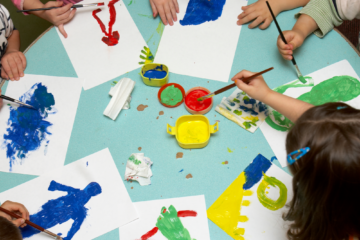Christie Schutz Vincelli, Ed.D.
Now, more than ever, the need for districts to design a multi-tiered system of support is crucial to student success. As students transition back to school from a lengthy stay at home period, districts need to ensure there is a proper system of support in place. As part of that, we need to be able to address both social skills and behavior. Here’s why.
Social skills are one of the most important skills children and adolescents develop, as they often serve as predictors of future success. These are behaviors and other forms of communication necessary to effectively create and maintain relationships. Social skills might include things like initiating conversations, making friends, having good sportsmanship, and handling bullying effectively.
Researchers from Pennsylvania State University and Duke University found that youth who scored higher on social skills measurements were four times more likely to graduate from an undergraduate institution.* Social skills have also been linked to job success, independence, and emotional well-being. These are some of the skills that are taught during social skills instruction:
- Survival skills: Listening, ignoring, following directions
- Interpersonal skills: Sharing, joining a conversation, taking turns talking
- Problem-solving skills: Asking for help, deciding what to do/appropriate action to take, recognizing when to apologize
- Conflict resolution skills: Dealing with teasing and bullying, losing/being a good sport, handling peer pressure
These skills have curricula and corresponding lessons to help students understand social norms and how to apply them in a classroom or school based setting. For a student who doesn’t know what the norm is, or how to respond appropriately when a social issue occurs, it becomes harder to provide intervention. Behavior, on the other hand, addresses one identified problem area that requires specific attention. Behavioral intervention includes an observable and measurable goal, a specific plan with research-based intervention, and then revisiting the effectiveness of the plan. We might use tools such as a reinforcement schedule or data collection to help us measure the targeted behavior.
In order to build a model that provides the most support for students, you need both social skills and behavioral intervention. Each part of the multi-tiered support system serves a specific purpose and ensures that students grow into independent learners and productive members of society. Response to intervention, commonly referred to as RTI, focuses on the practice of providing. high-quality instruction and interventions that are matched to student need, monitoring progress frequently to make decisions about changes in instruction or goals, and applying student.
Both systems work hand-in-hand to provide students the teaching and behavioral expectations with progress monitoring in order to assess how students are doing. The majority of students (80%) will learn the necessary skills in the classroom via social skills instruction and a solid behavioral program that provides reinforcement and consequences. The other 20% will require additional support. In order to have a success behavioral RTI model, you need both social skills intervention and behavioral intervention.
The first time that I set out to develop a behavioral RTI program, I made the mistake of assuming that social skills should be taught only to special education students with social skills deficits. I also assumed that the behavioral part of RTI only focused on behavior. Implementing behavioral RTI in both small and large districts helped me understand the value of both, and how to set our students up for success.
If you’re looking to implement a sound RTI system that includes both social skills and behavior, the Magnolia Consulting Group can help. We can provide handbooks and resources to ensure all students are supported socially, emotionally and behaviorally. Contact us at [email protected] to get started!
*Lake, Monica. “The Importance of Social Skills: Raising a Socially Intelligent Child.” GoodTherapy.org Therapy Blog, 9 Mar. 2018, www.goodtherapy.org/blog/importance-of-social-skills-raising-socially-intelligent-child-0102184.


